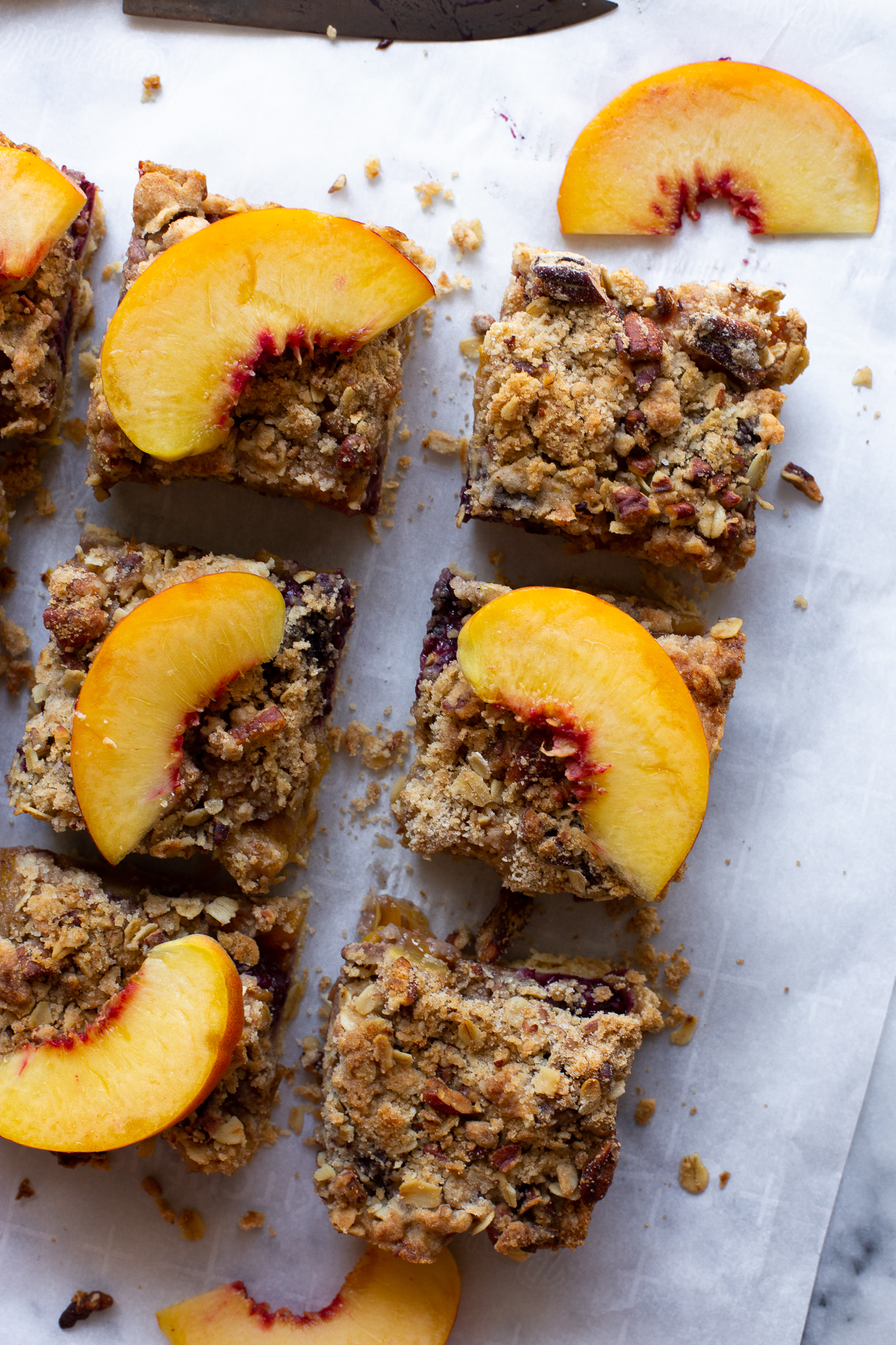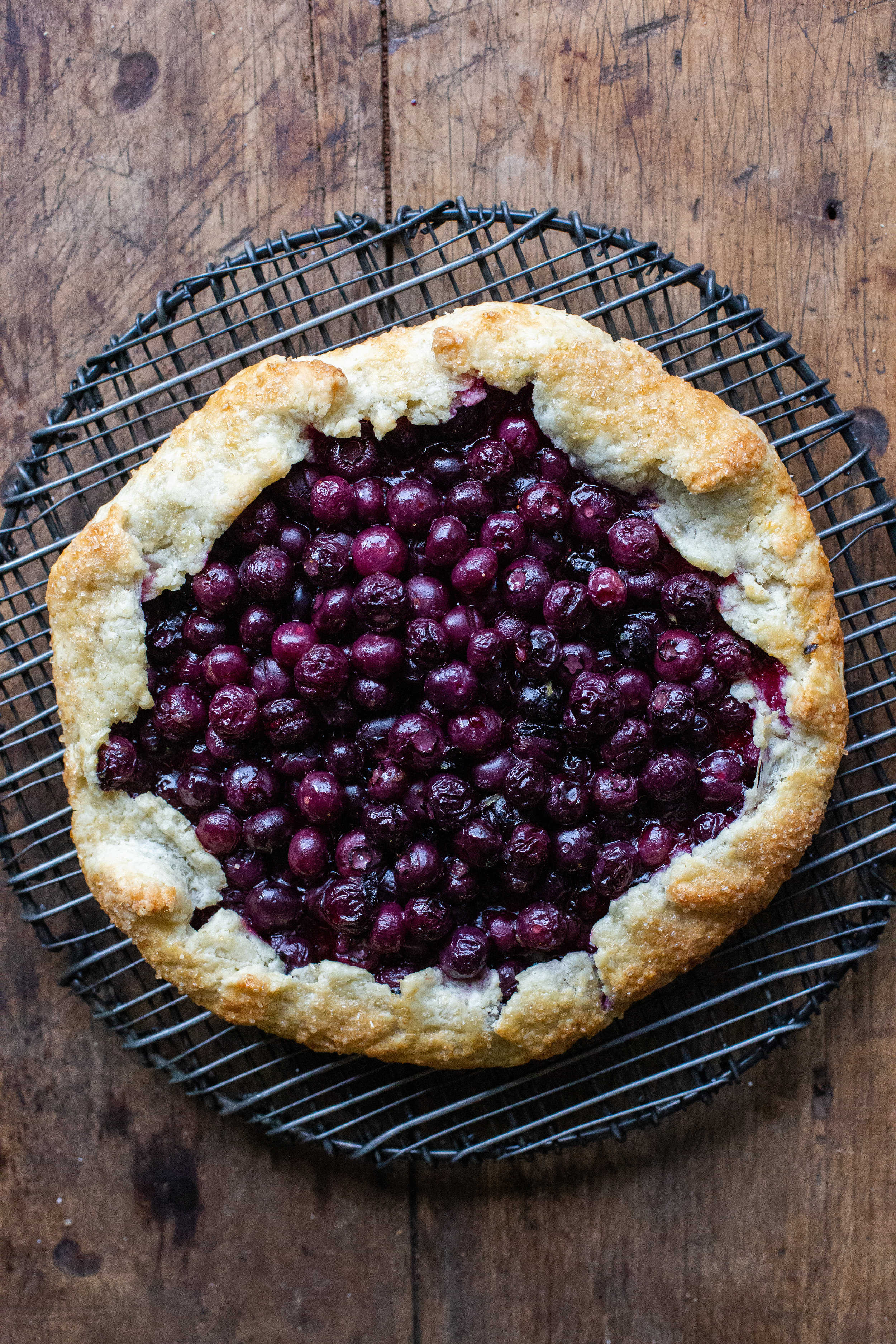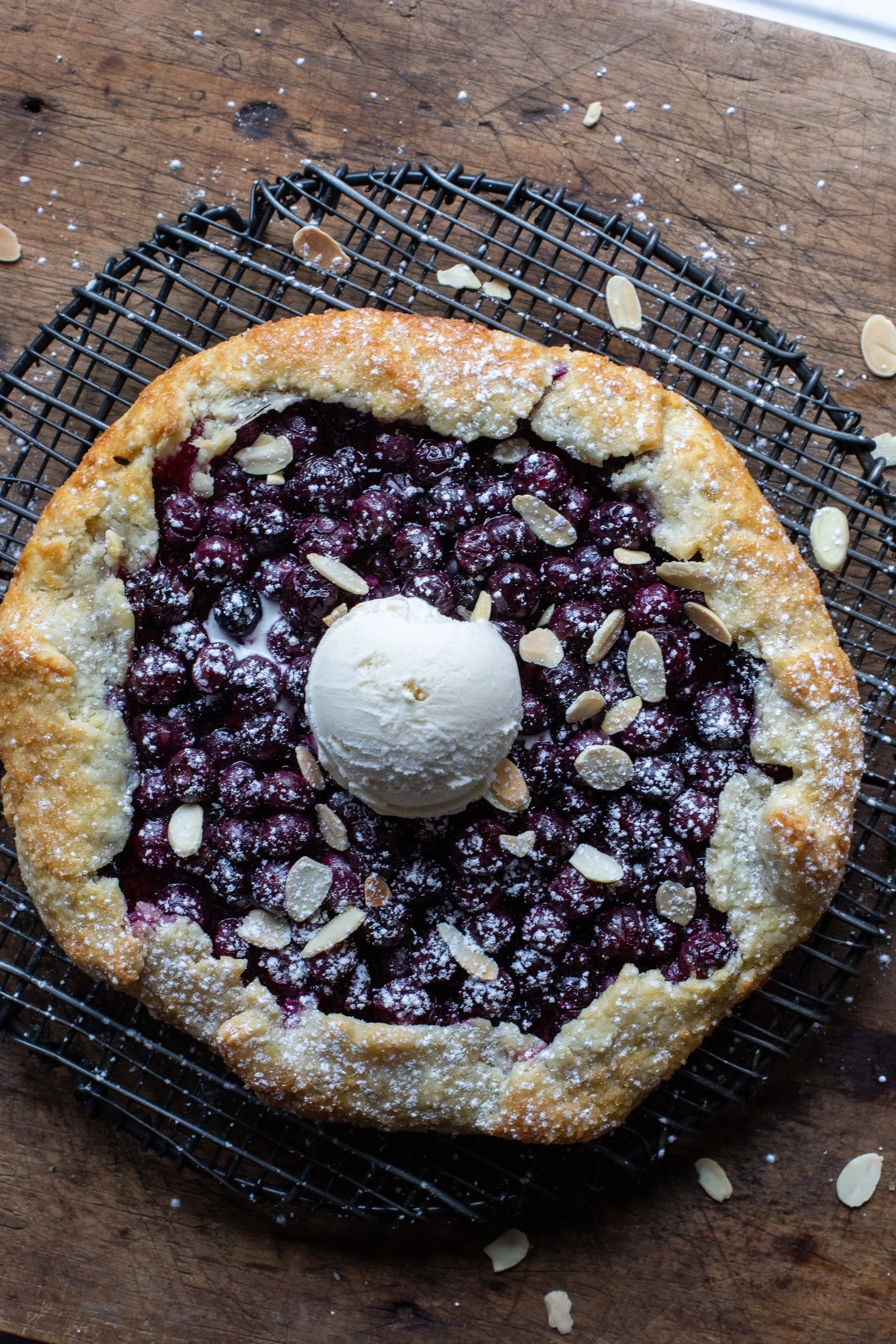The time has finally come: today I am giving you my FIRST pie recipe after having my blog for over 1.5 years!!! I’ve mentioned numerous times before that pies are just simply not my strong suit and therefore why I’ve been putting it off for so long. My initial goal was to have this recipe up before Thanksgiving, mostly because I promised you all that I would, but of course, with my luck, this didn’t happen. I had made a pie to shoot for this post and although it tasted incredible, crust included, the pie pretty much fell apart while baking. In the end, I simply couldn’t use it to photograph for the blog. To say that I was bummed out is a serious understatement because I had zero time to redo it before the holiday, but mostly because I knew that the recipe was great but I just had trouble executing it. So this last Friday, my very generous and skilled pie-maker aunt, Katia, came over and showed me the way to reach pie success and I couldn’t be happier with the final result. Moral of the story: when all else fails, hopefully you have an aunt that will help you.
Despite my mishap with my prior bake, I actually know a lot (re: TOO MUCH) about pie dough, pie filling, etc. After much research and comparing various recipes across the internet and in my personal cookbook collection, I’ve pulled together tips that I think will give you the most successful pie. If I could conquer cheesecakes and all the nuances that comes with baking those monsters, I knew that pies had to be my next mountain to conquer. I believe, after multiple failed attempts, I have tackled pies.
Apple pie à la mode has been in my top 5 favorite desserts for as long as I can remember. Strawberry pie’s great and chocolate silk pie is delicious and decadent but apple pie? Apple pie is perfection. With beautifully baked apples, hints of warm spices, and a flaky, buttery double-crust, no other pie beats apple pie. Therefore, it was an obvious choice for which pie recipe to introduce you all to first on The Vivid Kitchen.
Much like my cheesecake recipes where I gave you multiple tips to executing a perfect cheesecake, I also have a laundry list of tips when it comes to the pie dough, as well as actually baking the pie. Here they are:
When making the dough, you can either use your hands, a pastry cutter, or a food processor when it comes to cutting in the butter. I personally use a combo of a pastry cutter and my hands, which I think is your safest bet to avoiding overworking the dough. And when I add the ice water, I only use my hands so I could get a feel for whether I needed more water or not. It’s also vital that your ingredients, namely the butter and water, are very cold! I actually use frozen butter but straight from the fridge is fine.
After making your pie dough, you need to refrigerate it for at least two hours before rolling it out. Once properly chilled, allow the dough to sit at room temperature for 10 minutes so it won’t be brittle when rolling out. You can refrigerate the dough for up to 5 days or freeze them for up to 3 months. Just make sure they are properly wrapped in plastic.
When rolling out the dough, roll the pin only away from you, not back and forth. This ensures that the dough will be rolled out evenly. Also, after every couple of rolls, rotate the dough (pick it up off the floured-surface and rotate it) as to prevent it from sticking.
When it comes to which kind of apple to use, I would suggest apples that are on the tart side, like Granny Smith or Pink Lady. Other options that are a bit sweeter are Honeycrisp or Braeburn. And when it comes to slicing your apples, which you want to be very thin, like 1/4” thick, I highly recommend using a mandolin. Equally thin apple slices will prevent under cooked apples.
Thicken the apple pie filling with flour. I know some people add cornstarch instead but I actually read that adding flour is best for apple pies in particular, because apples are a less juicier fruit. And in order to prevent the pie from being too sweet as well as keeping the apples from browning, add a bit of apple cider vinegar. You could use lemon juice instead if you don’t have it.
Once your pie is filled and the top crust is added (with whichever topping design you choose to do), freeze the entire pie for at least 30 minutes before popping it in the oven. This locks in the design that you’ve chosen as well as keeps the butter from leaking while baking.
Place a rimmed baking sheet in the oven while it preheats, and place the pie on it while it bakes. This helps not only if there is any juice spills from the pie but most importantly, it combats the dreaded “soggy bottom” that all pie bakers try to avoid.
Bake the pie at a higher temperature at first (425°F) in order to set the dough, and then bring it down to 375°F for the remainder.
Use a pie shield or a makeshift foil ring if the edges of the pie brown faster than the center.
When the pie is baked, allow the pie to cool COMPLETELY before cutting into it. This is very hard to do because I know we all want a piece of warm apple pie with melted vanilla ice cream on top, but you can always warm up each slice after cutting.
Not too bad, right?
If you have no desire to do a double-crust apple pie or it all seems like too much work, then simply half the pie dough recipe below and do a streusel/crumb topping. I have no complaints when it comes to an apple crumb pie.
I know we’re well past Thanksgiving but apple pie is definitely Christmas dinner appropriate, so hopefully this recipe and my tips will come in handy for you!
All-Butter Pie Crust
Makes enough for a double-crust pie
Recipe adapted from NY Times Cooking
Ingredients
2 1/2 cups all-purpose flour
1/2 tsp. fine salt
1 cup (2 sticks) unsalted butter, cold (preferably frozen) and cut into small pieces
1/2 cup ice water, may use more or less
Directions
In the largest bowl you have, mix the flour and salt together. Add the butter pieces and gently toss them so they get coated with the flour.
Using a pastry cutter and/or your hands, cut the butter into the flour until the mixture is crumbly and the butter pieces resemble the size of a pea.
Make a well in the center, and begin to add the water in 1 tablespoon at a time. After each addition, gently stir the water in with either your hands or a wooden spoon. Depending on the climate in which you are making the dough, you may use all of the 1/2 cup of water or even more (if it’s dry, the flour will need more water versus a humid climate that wouldn’t need as much). You’ll know when the dough is ready when a handful holds together and doesn’t crumble. The dough will not be wet or sticky, but still a bit dry.
Transfer the dough to a lightly floured surface and knead it a couple of times until it comes together. Form the dough into a ball and cut it in half, and then form those halves into discs. Tightly wrap each disc in plastic wrap and refrigerate for at least a couple of hours. The dough can refrigerate for up to 5 days and can be frozen for up to 3 months (thaw overnight if you choose to freeze them).
Deep Dish Apple Pie
Yields (1) 9-inch deep dish, double-crust pie
Recipe adapted from Bon Appétit Magazine
Ingredients
All-Butter Pie Crust (recipe above)
3.5 lbs. apples, peeled and sliced very thinly (Pink Lady, Honeycrisp, Braeburn, Granny Smith are good options) - *best way to get even, thin slices is by using a mandolin
3/4 cup granulated sugar
1/4 cup brown sugar, packed (light or dark works)
1/4 cup all-purpose flour
3/4 tsp. cinnamon
1/2 tsp. nutmeg
1/8 tsp. allspice
1/4 tsp. kosher salt
2 tbsp. apple cider vinegar or fresh lemon juice (I strongly recommend the former)
2 tbsp. unsalted butter, cut into small pieces
1 large egg
Turbinado sugar
Vanilla ice cream and caramel sauce, to finish
Directions
Take out one of the pie dough discs from the refrigerator and let it sit out at room temperature for 10 minutes. On a lightly floured surface, roll out the dough to about a 13 inch diameter. Make sure to rotate the dough every couple of turns and to roll the rolling pin away from you, not back and forth.
Gently pick up the rolled out dough (best way to do this is by rolling it onto the rolling pin itself) and place it in a 9-inch deep dish pie dish (glass, ceramic, or aluminum work fine). Press the dough into the corners of the dish and leave the excess dough hanging over. Refrigerate while working on the apple filling.
Combine the apple slices, both sugars, flour, spices, salt and apple cider vinegar (or lemon juice) in a large bowl. Transfer the filling into the chilled pie dish - I would avoid just dumping the apples in and rather suggest using your hands to mindfully stack the apples into even layers as to prevent empty pockets. Do not flatten the apple slices but form them into a dome instead. Scatter the 2 tbsp. of butter pieces over the apples.
Take out the second pie dough disc, let it sit out for 10 minutes, and roll it out to about a 12 inch diameter. You have the choice to do whatever you want for the top crust… you can do a lattice like I did or leave it as is. If you’re not doing a lattice, make sure to cut about 4-5 slits around the center of the top crust to allow steam to escape. Place the pie in the freezer for 30 minutes. Meanwhile, preheat the oven to 425°F, move the rack to the bottom of your oven, and place a rimmed baking sheet on top.
In a small bowl, whisk the egg and 1 tbsp. of water and brush this over the top crust. Sprinkle generously with turbinado sugar.
Bake the pie on the preheated baking sheet at 425°F for 30 minutes, then rotate the pie, drop the temperature to 375°F and bake for another 30-40 more minutes. The pie will be done when the crust is a deep golden brown and the juices are bubbling. If any part of the top crust is browning too quickly, gently tent foil over the top or use a pie shield.
Allow the pie to cool completely before cutting into it. Serve with vanilla ice cream and caramel sauce.
















